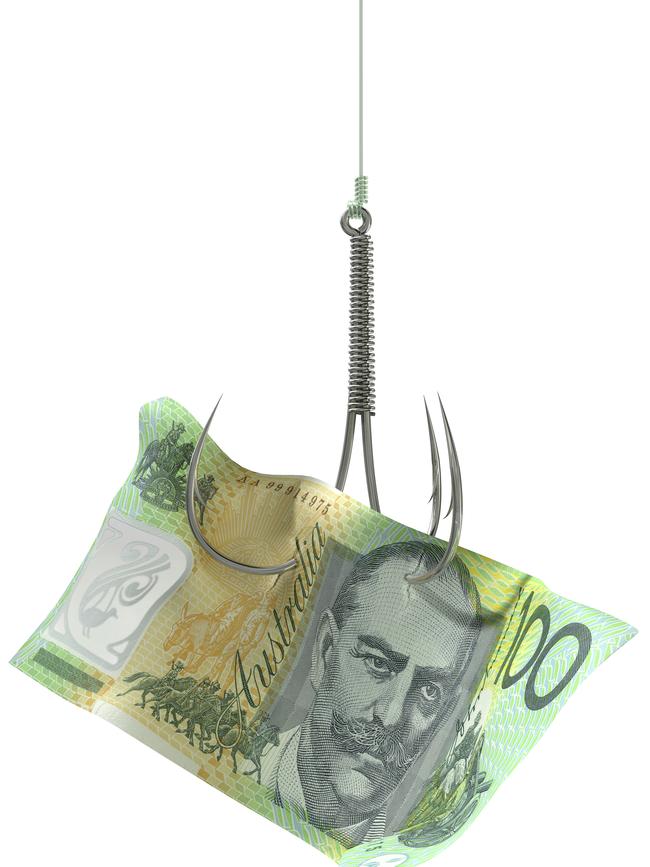How tax deductions for work-related expenses may be bad for some
Work-related expenses are complex, and an easy $1000 deduction at tax time is attractive, but experts warn people may miss out on money.
Business
Don't miss out on the headlines from Business. Followed categories will be added to My News.
Millions of workers hoping to grab Labor’s new $1000 “instant” tax deduction will be waiting a while, and even when it arrives it could prove costly for many people.
Taxpayers must wait until July 2027 to claim the new standard tax deduction for work-related expenses, which more than triples the current rate of claiming deductions without a receipt. While accounting specialists have welcomed the move they warn it is not as simple as it sounds.
They say a majority of taxpayers will get a bigger refund by continuing to collect receipts and keeping track of home office and motor vehicle use, rather than just claiming the standard tax deduction.
Last month Labor revealed it would introduce the new “$1000 instant tax deduction from 2026-27” to simplify work-related claims.

“The reform will allow taxpayers to choose to claim a $1000 instant tax deduction instead of claiming individual work-related expenses, saving time and money,” Prime Minister Anthony Albanese and Treasurer Jim Chalmers jointly announced.
Chartered accountant and Mr Taxman founder Adrian Raftery said the rule change was “long overdue”.
“Taxpayers have historically had a $300 threshold for work-related expenses without receipts going back to the 1980s, and this figure has never been adjusted for inflation, which has more than tripled in that time,” Dr Raftery said.
However, he said it could result in many people missing out on bigger deductions, because recent ATO data showed 9.86 million of 15.5 million taxpayers claimed an average deduction of $2506 for work-related expenses.
“While this proposed deduction will provide an extra tax break for a few million taxpayers who largely have little to claim, the $1000 instant claim will not assist the overwhelming majority who use their car, home, mobile phone or simply have professional memberships,” Dr Raftery said.
“People would be potentially leaving money on the table by accepting the $1000 instant deduction.
“Based on the 88c per kilometre rate for car deductions alone, if you travel more than 1136km a year for work then you are better off in calculating your tax deductions like you have always done.”
Working from home has boomed in recent years and deductions for this now require detailed records.
H&R Block director of tax communications Mark Chapman said the new instant tax deduction would benefit about six million workers who currently claimed less than $1000.
“It is intended to save time and money for taxpayers, who won’t — in theory – need to keep receipts to substantiate the $1000 deduction,” he said.
“Of course, in practice, many taxpayers will still need to keep full substantiation as they won’t necessarily know whether their work-related expenses are more or less than $1000 until they get to the end of the tax year.”
Mr Chapman said people should remember it was a standard deduction and not a simple refund of $1000.
“The amount you get back depends on your tax rate,” he said.

“For example, someone who pays tax at 30 per cent will get $300 – 30 per cent of $1000 – back.
“Taxpayers will need to complete a tax return to claim the deduction which means that it will be July 2027 at the earliest before they see any benefit.”
Mr Chapman said the Australian Taxation Office would no longer need to audit people who claimed the standard tax deduction.
“This will enable them to focus on higher tax claims, including work-related deductions over $1000, which is sure to increase the pressure on taxpayers to make sure they have the necessary records to support their claim,” he said.
“Currently taxpayers can claim up to $300 in work-related expenses without substantiation. If they exceed the $300, they need full substantiation for all their expenses, not just the excess over $300.”
Originally published as How tax deductions for work-related expenses may be bad for some




